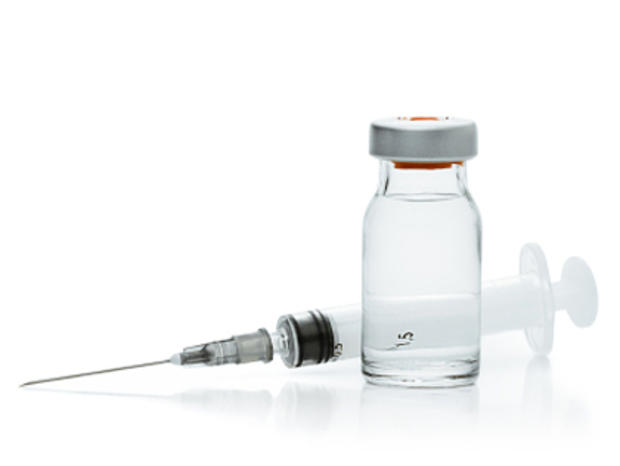Testosterone Therapy: Is It Safe?
By MICHAEL LASALANDRA, Beth Israel Deaconess Medical Center Correspondent
Should aging men take testosterone therapy?
It is a controversial issue.
Some say drug makers have "invented" a disease -- they call it "Low T" -- to get more men to start taking testosterone supplements, gels or injections.
These critics say taking testosterone comes with a host of risks, from increased risk of prostate cancer to cardiovascular problems.
As a result, the FDA has warned against casual use of the medications, saying they should be used only for patients with clinically low testosterone levels. And the drug makers have backed off on advertising the products.
Testosterone is what gives men their deep voices, big muscles, facial and body hair -- and libido. It also boosts mood.
Men start losing testosterone at the rate of 1 percent a year starting in their 40s. When it drops beyond a certain level, usually in their 60s, men may experience symptoms.
"Around 30 percent of men ages 65 and over will have low levels of testosterone and may have symptoms from it, including erectile dysfunction, less desire, loss of sensation and difficulty achieving orgasm," says Dr. Abraham Morgentaler, a urologist at Beth Israel Deaconess Medical Center and the Director of Men's Health Boston.
In addition, low testosterone may result in fatigue, depression and irritability. "The grumpy old man syndrome," he calls it.
About 20 years ago, Bob Mattioli, 67, managing partner of PrepMD, a Braintree company that trains people to support the clinical use of medical devices, says he was feeling sluggish, and not quite as sharp mentally as he had been.
"There were also some libido issues, but mainly I was feeling tired," he says. "I was running and lifting weights but wasn't getting much out of it."
His family doctor referred him to Men's Health Boston where Mattioli was tested and found to have low levels of testosterone. He started testosterone therapy and has been on it ever since. He injects himself in the thigh once a week.
"I can't say it has turned me into Superman, but I definitely recovered my clearheadedness," he says. "It just gave me a good sense of well-being."
He had to go off it for a period a few years ago when he was treated for a non-cancerous bladder lesion. "I immediately noticed the difference," he says.
Mattioli says he intends to continue on the therapy indefinitely. "I understand there's some controversy, but I feel pretty healthy," he says.
"Testosterone therapy has been remarkably controversial and in my opinion unfairly so," says Dr. Morgentaler. "I've been working with testosterone as a researcher for 40 years and as a clinician for 27 years."
He says the treatment reliably improves symptoms and is safe.
Numerous studies, he says, have shown no link to prostate cancer. The fear came from the finding, in the 1940s, that castration can cause prostate cancer to stop growing or regress. Dr. Morgentaler says that is true, but says that while prostate cancer does need testosterone to grow, it can only use a certain amount. More does not make it worse, he says.
As a result, some men with a history of prostate cancer are now being given testosterone. One study in which he is involved shows men with prostate cancer -- and who are monitoring it rather than having it treated -- and got testosterone had no difference in cancer progression when compared to men with prostate cancer who did not get testosterone.
While some studies have suggested testosterone medications could increase the risk of heart attack and other cardiovascular problems, Dr. Morgentaler and colleagues published a study in January in the Mayo Clinic Proceedings in which they reviewed the existing literature on the subject of testosterone and heart disease and concluded there is no evidence of increased cardiovascular risks with testosterone therapy.
"On the contrary, there appears to be a strong beneficial relationship between normal testosterone levels and cardiovascular health that has not yet been widely appreciated," the paper concluded.
"The bottom line is that testosterone deficiency really affects men in negative ways, sexually and in terms of general quality of life, and treatment is effective and, when monitored by a physician, really quite safe," he says.
Above content provided by Beth Israel Deaconess Medical Center. For advice about your medical care, consult your doctor.
Posted October 2015
